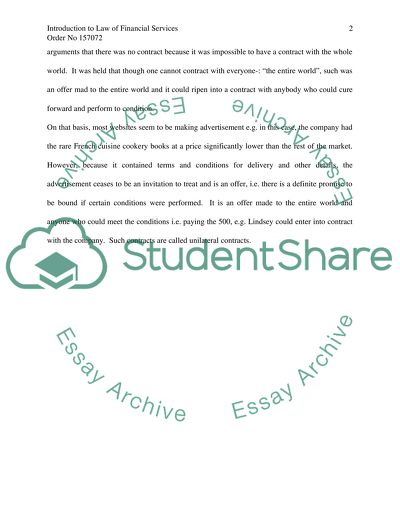Cite this document
(Introduction to Law of Financial Services Assignment, n.d.)
Introduction to Law of Financial Services Assignment. Retrieved from https://studentshare.org/law/1539683-introduction-to-law-of-financial-services
Introduction to Law of Financial Services Assignment. Retrieved from https://studentshare.org/law/1539683-introduction-to-law-of-financial-services
(Introduction to Law of Financial Services Assignment)
Introduction to Law of Financial Services Assignment. https://studentshare.org/law/1539683-introduction-to-law-of-financial-services.
Introduction to Law of Financial Services Assignment. https://studentshare.org/law/1539683-introduction-to-law-of-financial-services.
“Introduction to Law of Financial Services Assignment”. https://studentshare.org/law/1539683-introduction-to-law-of-financial-services.


